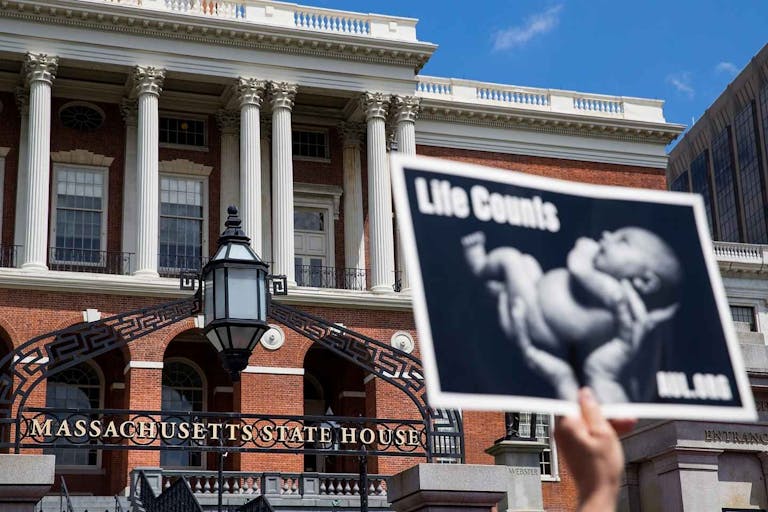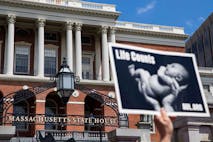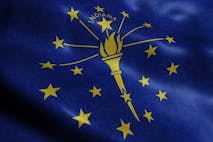
Massachusetts Health Department wants primary care to include abortion
Cassy Cooke
·
Indiana judge denies Planned Parenthood’s request to expand abortion
A special judge in Monroe County, Indiana, has denied a request by Planned Parenthood to broaden the medical exceptions under which abortions would be allowed under state law.
Indiana’s abortion law, SB 1, protects nearly all preborn children in the state from abortion. Abortion is only permitted in cases of rape and incest, if there is a “lethal fetal anomaly” before 20 weeks, and when “abortion is necessary when reasonable medical judgment dictates that performing the abortion is necessary to prevent any serious health risk to the pregnant woman or to save the pregnant woman’s life.” The law also requires that abortions be committed in a hospital — not in independent abortion businesses.
Following the law’s passage, Planned Parenthood filed a lawsuit, claiming the law “unnecessarily restricted” abortion because women may desire an abortion “that may not meet the limited exception for serious health risks set out in SB 1.” It also fought the hospital-only requirement on the basis that it “increases the cost of abortion….”
In her ruling on Wednesday, Judge Kelsey Hanlon upheld the state law and said it does not unnecessarily burden women seeking abortion, as she noted that the only medical conditions not covered under the exemption were mental illnesses.
Hanlon said the plaintiffs did present “compelling evidence regarding the serious nature of mental illness for perinatal women,” however, they were not successful in demonstrating why those illnesses would necessitate abortion. Hanlon also upheld the hospital requirement, saying the plaintiffs had not shown why that requirement is burdensome.
READ: Federal judge strikes down Indiana law meant to protect minors from coerced abortions
“The court is not tasked with determining the wisdom of SB 1,” Hanlon stated, according to court documents. “Rather, the court limits its analysis to whether SB 1 prevents patients from exercising a constitutional right to protect themselves against serious health risks by materially burdening access to abortions necessary to address that risk.”
Article continues below
Dear Reader,
Have you ever wanted to share the miracle of human development with little ones? Live Action is proud to present the "Baby Olivia" board book, which presents the content of Live Action's "Baby Olivia" fetal development video in a fun, new format. It's perfect for helping little minds understand the complex and beautiful process of human development in the womb.
Receive our brand new Baby Olivia board book when you give a one-time gift of $30 or more (or begin a new monthly gift of $15 or more).
“Plaintiffs have not shown an instance where an abortion is necessary to treat a serious health risk but would also fall outside of the health and life exception,” the ruling said. “Additionally, plaintiffs have not demonstrated that the hospital requirement is materially burdensome to constitutionally protected abortion access, nor that it fails rational basis review as to statutorily authorized (but not constitutionally protected) abortions.”
Attorney General Todd Rokita praised the ruling.
“Indiana’s pro-life law is both reasonable and constitutional, and we’re pleased the Monroe County Circuit Court upheld it,” he said in a statement. “This is another huge win for life and no matter how many times Planned Parenthood tries to sue and push forward their culture of death, we will continue fighting for mothers, fathers, and the unborn.”
Indiana Right to Life President and Chief Executive Office Mike Fichter also applauded the court’s decision.
“The limits in Indiana law have been highly effective in ending the killing of over 9,000 babies per year and stopped the abortion profiteers from making millions at the expense of women and their babies,” he said in a statement. “The Indiana Supreme Court has already ruled Indiana’s law is constitutional and the U.S. Supreme Court affirmed in its 2022 Dobbs ruling the right for states to determine abortion law. As abortion businesses like Planned Parenthood continue to seek ways to undermine Indiana law, we will remain focused on helping Indiana become a model state in showing compassion for pregnant mothers and providing protection for unborn babies.”
Live Action News is pro-life news and commentary from a pro-life perspective.
Contact editor@liveaction.org for questions, corrections, or if you are seeking permission to reprint any Live Action News content.
Guest Articles: To submit a guest article to Live Action News, email editor@liveaction.org with an attached Word document of 800-1000 words. Please also attach any photos relevant to your submission if applicable. If your submission is accepted for publication, you will be notified within three weeks. Guest articles are not compensated (see our Open License Agreement). Thank you for your interest in Live Action News!

Cassy Cooke
·
Politics
Cassy Cooke
·
Politics
Bridget Sielicki
·
Human Interest
Angeline Tan
·
Issues
Bridget Sielicki
·
Human Interest
Bridget Sielicki
·
Politics
Bridget Sielicki
·
Issues
Bridget Sielicki
·
Human Interest
Bridget Sielicki
·
Activism
Bridget Sielicki
·
Politics
Bridget Sielicki
·